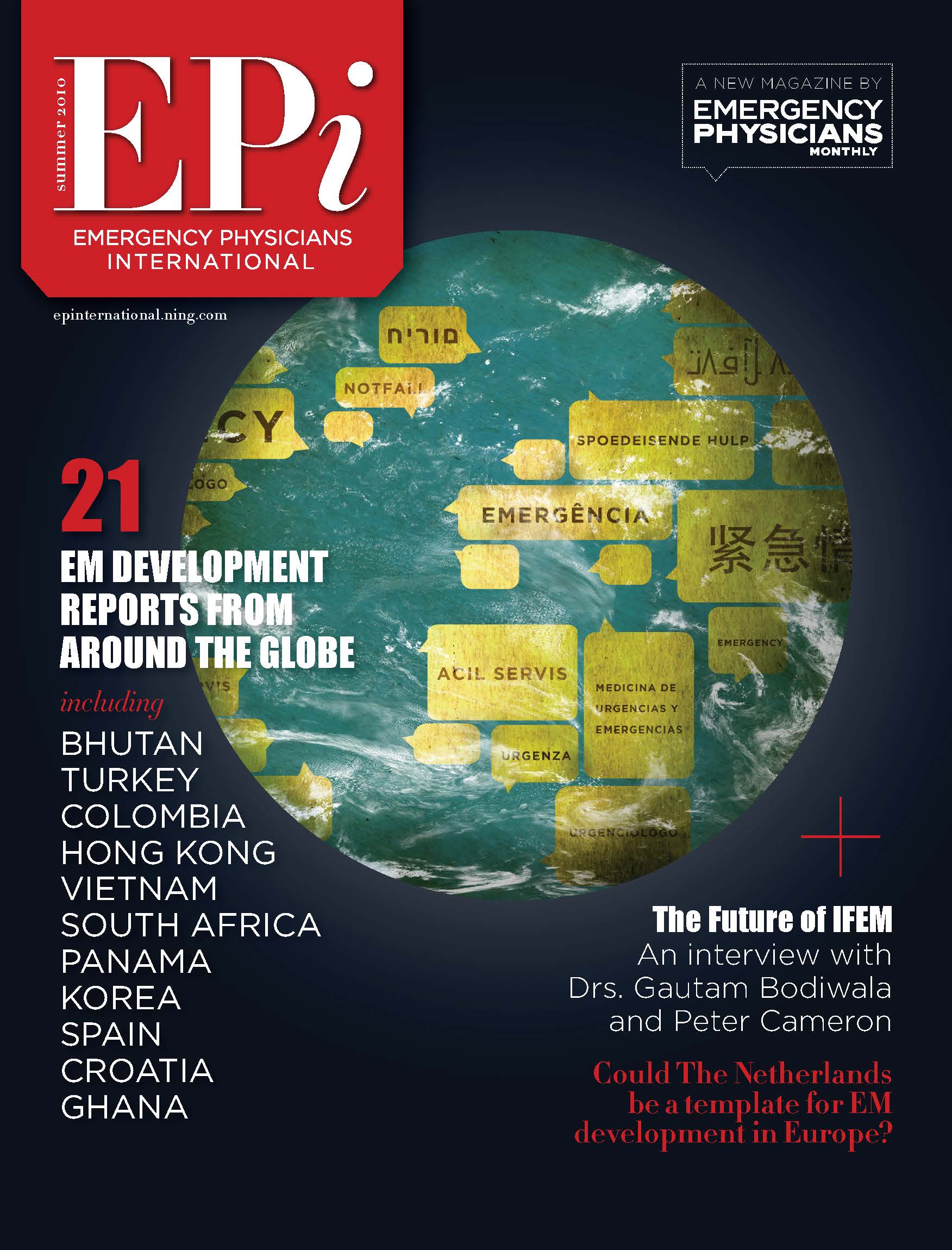Stop Bombing Hospitals: Why the World Needs the Colombo Declaration
October 3, 2018 marked the three year anniversary of the aerial attack on the Kunduz Trauma Centre in Northern Afghanistan. At the time I was working there as the ED and ICU supervisor during my first mission with Médecins Sans Frontières (MSF). I still can’t find words to describe adequately the all-consuming panic, nauseating fear, and chest-clutching grief that clouded my judgement as I darted between my friends, my colleagues, their dying bodies ripped apart by over 200 missiles that rained down through the ceiling of our hospital that night. Oh the shock, the disbelief, the devastation of trying to process the image of the smouldering remains of our intensive care unit, our emergency department, our operating theatres, the forty-two charred bodies of our staff and patients lying among the ashes of our decimated hospital.
“Please, please tell the world our story.”
This was the last thing said to me by one of my surviving colleagues just before I was evacuated to safety after the bombing, leaving behind all of the local staff in the ruins of our hospital.
To honour my deceased Afghan colleagues was enough of an imperative for me to start telling our story. However, the realisation that the attack on our hospital had not occurred in isolation, that it was, in fact, just one of a growing trend of hospital bombardments in conflict zones around the world, shocked me into action.
And the numbers are shocking indeed. In 2017 alone, there were at least seven hundred one attacks on hospitals, health workers, patients and ambulances in twenty three countries (1).
And the numbers are shocking indeed. In 2017 alone, there were at least seven hundred one attacks on hospitals, health workers, patients and ambulances in twenty three countries (1).
Before witnessing my own hospital being bombed, I believed that medical facilities were protected under international humanitarian law. I had learned that in the aftermath of the World Wars, in an attempt to limit the suffering caused by armed conflict, the international community adopted the Geneva Conventions, establishing rules to protect people who were not participating in the hostilities–civilians, medical personnel, injured soldiers and so on. Violations of these rules of war, such as bombing a hospital, I understood, constituted a war crime.
When I began telling our story of Kunduz Trauma Centre attack and the growing trend in hospital bombardment, my talk was entitled “Oh Sh**! They’re bombing our hospital. Is this the new paradigm of war?” I was asking a question; a question which contained a sense of disbelief in what appeared to be blatant disregard for international humanitarian law. My talk now, however, is entitled “Oh Sh**! They’re bombing our hospital. This is the new paradigm of today’s war.” It is a statement.
It is undeniable that despite the Geneva Conventions, hospitals have been attacked in many conflicts. But the pattern, frequency, and nature of these attacks has changed considerably over the last few years. Recently termed the “weaponization” of health care (2), bombing hospitals has become part of an multi-dimensional war strategy which uses large scale violence to systemically and deliberately target medical facilities, depriving people of their access to health care. These attacks are not simply ‘mistakes’ occurring in the fog of war, collateral damage, if you will. This is a tactic of warfare–targeted attacks, often using aerial bombardment technology so precise that it is referred to, somewhat ironically, as “surgical” strikes. This is indeed unprecedented.
In response to these sobering conditions, hospitals in Syria and Yemen are now built underground, their GPS coordinates are kept secret, and doctors disguise themselves to hide their occupations.
Despite calls from all the major international health related organisations, and in blatant violation of the 2016 United National Security Council (UNSC) Resolution 2286, which demands that all warring parties fully comply with the rules of war (3), hospitals continue to be bombed with impunity. The relentless bombing of hospitals in Yemen, for example, has continued to the point where it is estimated that over 50% of their health facilities have been destroyed (4). The attacks in 2017 on East Aleppo continued until there were no functional medical facilities remaining and the number of health workers was in single digits.
In 2016 I spoke at the DevelopingEM Conference in Colombo, Sri Lanka. The delegates attending the conference represented twenty countries, including Sri Lanka’s neighbours of Laos, Cambodia, Nepal, India, Pakistan and Afghanistan. Up until that point I had spoken mostly to western audiences who had never known war. To them, my story was an anomaly and my aim was to catch their attention and make them aware of the horrifying reality of hospital attacks in conflict zones around the world. Yet standing on the stage in Sri Lanka, a country that had only recently experienced its own civil war during which hospitals were attacked, I was completely overwhelmed by the collective grief I felt radiating from the audience. After my presentation, delegates approached me and shared their stories of working in war zones – a bomb going off in their hospital lobby, being held at gunpoint while the military searched and killed one of their patients, stray bullets landing inside their hospital walls, the conflicting emotions of wanting to serve their community in its time of need, yet not wanting to be killed, the fear and the loss and the heartache of watching their community be decimated by war. We cried together. And then we embraced.
As we held each other in that moment, I was transported back to the aftermath of the bombing of Kunduz, to the embrace I shared with my colleague and friend Dr Sobrah* after Dr Amin, one of our ED doctors, was declared dead. One of the missiles that had crashed through the ceiling in ED had hit him, ripping off his leg. He had survived several hours but then died on a kitchen table-our makeshift operating table-while the surgeons desperately tried to find a source of bleeding to save his life. Trying to absorb the reality of Dr Amin’s ashen body, I turned to look into the grief-stricken face of Dr Sobrah. We threw our arms around each and sobbed. All cultural rules suddenly disappeared. In that moment there was nothing but raw devastation shared between two humans beings witnessing unthinkable horror.
It is there–in the embrace shared between the delegates of the DevelopingEM conference and between my Afghan colleagues–that the true depth of the effect that hospital attacks have on humanity, lies.
The response from the DevelopingEM conference has been remarkable. The faculty and delegates unanimously agreed upon and have formally released the “Colombo Declaration” which condemns attacks of medical facilities, reaffirms support for the principles of healthcare delivery in conflict zones under international humanitarian law, and, importantly, calls upon the UNSC and all UN Member States to take immediate action to enforce Resolution 2286. It also encourages medical societies, specialist colleges, to individually and collectively do what they can to support the principles of the declaration.
Read the declaration here: Colombo Declaration
Since then, the Australasian College for Emergency Medicine (ACEM) and the College of Emergency Nursing Australasia (CENA) have formally supported the Colombo Declaration, and the Australian and New Zealand Intensive Care Society (ANZICS) have released their own statement in support of these principles.
The Colombo Declaration will be revisited at the DevelopingEM Fiji conference this December. (https://developingem.com/2017/12/27/developingem-2018-fiji/) The aim is to widen support from the medical community, to spread awareness of the weaponization of healthcare, and to establish ways in which individuals and the medical community at large can help to make a change.
The importance of highlighting the ongoing weaponization of healthcare can not be underestimated. The UNSC resolution has, at least so far, proved to be empty rhetoric; hospitals continue to be bombed with impunity. There is a shocking lack of accountability. One of the few tools we have is to press the world powers publically. We can only do this by keeping a spotlight on this issue, of growing its visibility, so that there is a collective global voice saying loudly and clearly that we have not grown numb to attacks on medical facilities, and that we will not tolerate this new norm.
If we do not speak of this issue, our silence will ensure complacency, making the future of medical humanitarian work in conflict zones infinitely more difficult, if not impossible, thereby creating an unbearable situation for our international colleagues and forsaking the needs of our patients.
And even if we, as individuals currently living with the luxury of peace, are unconvinced by a humanitarian imperative, we need to consider that a time may come when we, or the next generation of doctors, may find ourselves caught up in a war closer to home with no sanctuary or protection in which to look after our own patients.
Sometimes this fight seems hopeless and I want to give up. But then I get a message from Dr Sobrah telling me about the latest mass causality he dealt with when a car bomb was detonated just a few blocks from his hospital. Or I read about a Yemeni doctor who, despite repeated aerial strikes on his hospital, despite a constant lack of supplies, despite his absolute exhaustion, still gets up every day and goes to work. It is these unsung heroes, working in extreme conditions that I cannot fathom, who have no option to leave, or who choose to stay, that give me strength. These brave medical professionals have not given up hope, so how can I, how can we?
Safeguarding Health in Conflict Coalition. Violence on the Front Line: Attacks on Healthcare 2017 https://www.safeguardinghealth.org/sites/shcc/files/SHCC2018final.pdf
Fouad F et al. Health workers and the weaponisation of health care in Syria: a preliminary inquiry for the Lancet-American University of Beirut Commission on Syria. The Lancet arch 2017 http://dx.doi.org/10.1016/S0140-6736(17)30741-9
United Nations. Security Council adopts resolution 2286 (2016), strongly condemning attacks against medical facilities, personnel in conflict situations. May 3, 2016. https://www.un.org/press/en/2016/sc12347.doc.htm
Physicians for Human Rights. Yemen. https://phr.org/countries/yemen/#top
*Dr Sobhrah’s name has been changed







